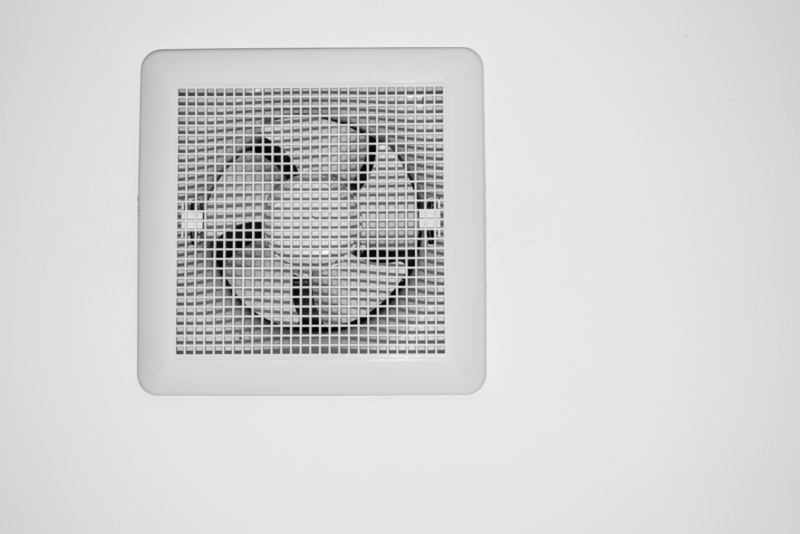Discover the Significance of Clean Air for Homes and Workplaces
Posted on 13/10/2025
Discover the Significance of Clean Air for Homes and Workplaces
In today's fast-paced world, we spend the majority of our time indoors, whether at home or in the workplace. Yet, few people stop to consider the quality of air they breathe inside these environments. Understanding the importance of clean indoor air is not just about comfort — it's critical for your health and wellbeing. This comprehensive guide will help you discover the significance of clean air for homes and workplaces and provide actionable solutions for maintaining optimal air quality.

Why Is Clean Air So Important Indoors?
Breathing clean air is essential for everyone, regardless of age or background. The quality of indoor air impacts health, productivity, focus, and even moods. Poor air quality in homes and workplaces can lead to a variety of complications, ranging from minor irritations to serious chronic illnesses.
Main Benefits of Fresh Air in Indoor Spaces
- Reduces respiratory issues, including asthma and allergies.
- Improves mental clarity and boosts concentration & productivity.
- Helps control humidity and prevents mold growth.
- Eliminates harmful airborne pollutants and allergens.
- Enhances general well-being and immune function.
Understanding Indoor Air Pollution
Indoor air pollution often goes unnoticed because, unlike outdoor smog, it is typically odorless and invisible. The concentrations of pollutants indoors can be 2-5 times higher than outdoors, according to the Environmental Protection Agency (EPA). Home and workplace environments often harbor contaminants such as:
- Dust mites
- Mold spores
- Pollen
- Pet dander
- Chemical fumes from cleaning products
- Volatile Organic Compounds (VOCs) from paints, plastics, and furnishings
- Tobacco smoke
Health Risks Associated with Poor Indoor Air Quality
The consequences of breathing contaminated or unclean air indoors can be far-reaching, impacting both the short-term and long-term health of residents and employees alike. Some of the common health issues caused by poor indoor air quality include:
- Allergic reactions: Sneezing, itchy eyes, skin rashes
- Respiratory issues: Asthma, bronchitis, chronic coughing
- Fatigue and headaches
- Cognitive problems: Difficulty concentrating and decision fatigue
- Serious illnesses: Increased risk of heart diseases, cancer, and stroke (long-term exposure)
Ensuring clean indoor air is particularly crucial for vulnerable groups such as children, the elderly, pregnant women, and those with pre-existing health conditions.
Common Sources of Indoor Air Pollution
To effectively tackle indoor air issues, it is crucial to recognize the main sources of contamination that can compromise air quality in both homes and workplaces:
- Inadequate ventilation: Poor airflow allows pollutants to accumulate indoors.
- Building materials: Carpets, pressed wood products, and certain paints release VOCs and other chemicals.
- Household chemicals: Cleaners, pesticides, and air fresheners can introduce harmful substances.
- Office equipment: Printers, copiers, and computers can emit tiny particles and gases.
- Occupant activities: Smoking, cooking, and burning candles/gas stoves contribute to indoor air pollution.
- Mold and mildew: Moist environments promote the growth of mold spores.
Benefits of Clean Air at Home
Your home should be a sanctuary where you and your family feel safe and healthy. Clean home air ensures your living space is free from pollutants and allergens, offering a range of benefits:
- Enhances sleep quality: Fresh air promotes deeper, more restful sleep.
- Supports children's growth: Kids need clean air to develop strong lungs and immunity.
- Protects family health: Reduces the risk of illnesses and allergy flare-ups.
- Preserves household items: Unpolluted air helps prevent the buildup of grime and prolongs the life of furniture, electronics, and fabrics.
- Increases property value: Homes with better air quality are often more attractive to buyers.
Importance of Fresh Air in the Workplace
According to numerous studies, the quality of the air in workplaces directly affects the well-being, satisfaction, and productivity of employees. Here's why clean workplace air should be a priority:
- Boosts employee performance: Fresh air leads to improved concentration and fewer sick days.
- Reduces absenteeism: Clean air can lower the frequency of respiratory and allergic illnesses among staff.
- Creates a positive work environment: Healthy environments foster morale and job satisfaction.
- Keeps equipment running smoothly: Dust and particles can damage office devices and computers.
- Enhances company reputation: Businesses that prioritize employee wellness are more attractive to talent and clients.
How to Improve Indoor Air Quality: Practical Steps for Homes and Offices
Whether you're at home or in the office, several effective strategies can help you maintain clean indoor air. Consider implementing these tips:
Ensure Proper Ventilation
- Open windows regularly to let fresh air in and expel stagnant, polluted air.
- Use exhaust fans in kitchens and bathrooms to remove excess moisture and odors.
- Install mechanical ventilation systems if natural airflow is insufficient.
Control Humidity Levels
- Use dehumidifiers or air conditioners to keep indoor humidity between 30%-50%.
- Address leaks or sources of moisture quickly to prevent mold growth.
Embrace Air Filtration and Purification
- Use High-Efficiency Particulate Air (HEPA) filters in HVAC systems and standalone air purifiers.
- Change filters regularly to ensure effectiveness.
- Consider ultraviolet light or ionizing purifiers to neutralize certain bacteria and viruses.
Limit Use of Chemical Products
- Choose eco-friendly, non-toxic cleaners and paints.
- Avoid using aerosol sprays and strong air fresheners indoors.
- Safely store chemicals and ensure proper room ventilation when using such products.
Introduce Indoor Plants
- Certain plants like spider plants, peace lilies, and snake plants can help remove toxins from the air and increase oxygen levels.
Maintain Cleanliness
- Vacuum carpets and upholstery regularly (ideally with HEPA-filtered vacuums).
- Dust surfaces using damp cloths to prevent particles from becoming airborne.
- Wash bedding, curtains, and soft furnishings frequently to minimize dust mites and allergens.
Ban Smoking Indoors
- Establish designated smoking areas outside the main premises to prevent the buildup of harmful tobacco smoke indoors.
Monitor Indoor Air Quality
- Install air quality monitors to measure pollutant levels and detect problems early.
- Regularly review data to track improvements and identify emerging issues.
Latest Advances in Indoor Air Purification
Technological advances have made it easier than ever to maintain clean and fresh air in homes and businesses. Some innovations include:
- Smart air purifiers with real-time monitoring, auto-mode, and app controls.
- Advanced filtration systems that target specific allergens, bacteria, and viruses.
- Green building designs that integrate natural ventilation & materials minimizing off-gassing.
- Sensor technology for continuous assessment and automated adjustment of ventilation and purification systems.
Addressing Clean Air in the Era of Hybrid Work and Urban Living
Changes in how and where people work are increasing the amount of time we spend in indoor environments. Urbanization is also leading to smaller, more densely packed homes and offices with limited ventilation possibilities. The growing use of air conditioning and sealed buildings further underscores the need for intentional actions to improve indoor air quality.
Employers, property managers, and individuals must work together to prioritize indoor air standards, including regular maintenance, investment in new technologies, and promoting daily habits that maintain a healthy indoor environment.
Government and Occupational Standards for Indoor Air Quality
Governments and global organizations provide guidelines and regulations to protect occupants in homes and workplaces:
- OSHA (Occupational Safety and Health Administration) mandates ventilation requirements for workplaces.
- EPA provides educational materials and recommendations, especially regarding radon, mold, and carbon monoxide.
- World Health Organization (WHO) sets global standards for air quality and pollutant levels.
- ASHRAE (American Society of Heating, Refrigerating and Air-Conditioning Engineers) establishes best practices for indoor environments.
Awareness and compliance with these standards are vital for ensuring everyone's safety and comfort.

Conclusion: Make Clean Air a Priority for Healthy Living and Working
The importance of clean air in homes and workplaces cannot be overstated. From protecting your family to boosting workplace productivity, the advantages are clear and far-reaching. By understanding the sources of indoor air pollution and implementing practical solutions, you are taking a proactive step towards a healthier, happier, and more productive life.
Let's work together to make clean indoor air a priority — because where we live and work should always be safe and nurturing environments.
FAQs About Indoor Air Quality
- Q: How often should I check indoor air quality?
A: It's wise to monitor air quality continuously using monitors, but at minimum, conduct assessments every 6-12 months. - Q: Can houseplants really help clean the air?
A: While plants can improve aesthetics and contribute a little, they should be part of a holistic air quality strategy. - Q: Are air purifiers necessary in every home and workplace?
A: For locations with high pollution, allergen problems, or limited ventilation, they can be extremely beneficial. - Q: What is the best way to remove VOCs indoors?
A: Minimize sources, ventilate, and use activated carbon filters which are effective at adsorbing VOCs.
By understanding and addressing air quality, you ensure your home and workplace become havens of health. Don't compromise when it comes to the purity of the air you breathe.
Latest Posts
Transform Your Space: Cleaning Curtains the Right Way
Expert Tips for Streak-Free Window Perfection
Discover the Significance of Clean Air for Homes and Workplaces
Expert Techniques for a Spotless Car Inside and Out
Essential Guide to Maintaining Your Velvet Curtains' Elegance



